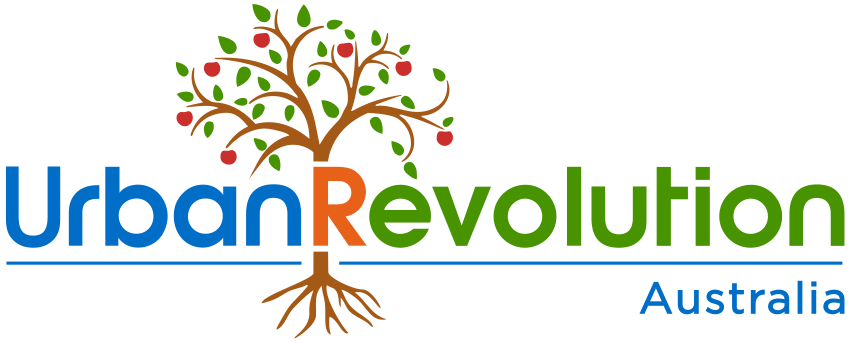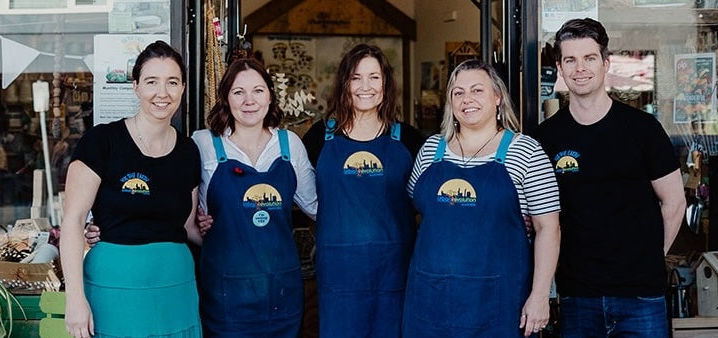Organic fruit & veg, dry foods, skin products and other items are a hot topic at the moment, but what does it actually mean if something's Certified Organic and why would you choose organic over conventional? In this article, we discuss what it means if something is Certified Organic and how this benefits human health and also benefits the planet.

What Does Certified Organic Mean?
Any product that is organic essentially means that an attempt has been made to remove toxins and man-made chemicals from the whole production process. A product that is Certified Organic means that the producers have gone through rigorous testing by an independent regulator (such as Australian Certified Organic or NASAA Certified Organic) to ensure that no synthetic toxins are present in the product. These producers receive an Organic Certification and can display a 'Certified Organic' label on their product.
Almost any type of item can be produced organically, including fruit & veg, dry foods, meat, eggs, dairy, other packaged & processed foods, personal care products (including skincare, hair care, oral care and more), plants, soil inputs and more.
Products that are Certified Organic mean that they are free of common toxic additives including the following:
- No synthetic chemicals
- No synthetic pesticides or herbicides
- No routine use of antibiotics (organic meat)
- Livestock are free to roam (organic meat)
- Made without artificial colours and preservatives
- No genetically modified (GM) ingredients
Certified Organic standards cover production, processing, transportation, labelling and importation though they differ between countries around the world. In general (including in Australia), it is a rigorous and costly process to become Certified Organic and involves annual fees, testing, auditing, documentation, labelling and approvals.

Benefits of Choosing Certified Organic
- A number of studies have shown organic foods to be more nutrient dense and contain more antioxidants than their conventional counterparts.
- Avoid toxic pesticides by choosing organic. Conventional foods are four times more likely to have pesticide residues on them than organic foods.
- Avoid toxic heavy metal contaminants that are much more likely to be found in conventional foods, including cadmium, lead and mercury.
- The much lower toxic contamination of organic products can prevent all kinds of health repercussions that are associated with heavy metal, synthetic pesticide, GMOs and other toxic chemical contamination. Conditions reportedly linked to these substances include sensitivity to allergens, poor immune function, cancer, autism, ADHD, infertility (in men and women), sexual dysfunction and more.
- The over-use of antibiotics in conventional livestock is causing widespread antibiotic resistance and weakening human immune systems through ingesting these antibiotics second-hand through conventional meat, dairy and other animal products. Organic producers do not use antibiotics in their processes.
- Organic animal products are more likely to come from animals that have not been mistreated.
- Many people are adamant that organic produce tastes better! If not from the higher nutrient levels then from (often) being fresh and seasonal rather than being imported and kept in cold storage for months before reaching supermarket shelves as many conventional items are.
- Minimise soil, water and air pollution by choosing to support organic practices that don't use toxic synthetic chemicals that are harmful to the Earth's ecosystems.
- Support people who are trying to do better for human health and the planet.

Limitations of the Organic Certification
- Becoming Certified Organic is expensive! This is a huge barrier for farmers and other producers and also elevates the cost of organic products for consumers. Many small sellers (including some of our organic product suppliers at Urban Revolution) follow organic practices but can't afford the certification.
- Organic Certification only outlines a list of what producers can't use. You can't be sure what they are using instead.
- The Certified Organic guidelines and label do not cover soil or ecosystem health. Organic does not mean sustainable! A farm can be Certified Organic and still be over-tilling, over-farming and desertifying land until it can no longer sustain life. Read more about this in our article on Organic, Biodynamic and Regenerative Agriculture.

Overall, choosing to buy Certified Organic is much lower in pesticides, heavy metals and other toxins, higher in nutrients and antioxidants and is supporting practices that do no pollute the environment with toxins. It is a much better option than conventional products but still has its limitations.
For the best chance of finding local Certified Organic produce in Perth, try these five great Perth Farmers Markets:
- Perth City Farm's Farmers Markets
- Farmers Market on Manning
- Loose Produce
- The Big Little Store
- Organic on Charles
Read more in this article on Organic, Biodynamic and Regenerative Agriculture.
That being said, the easiest way to eat organic is to grow your own! Growing your own fresh produce, particularly from seed, means that you know exactly what is going into the soil and that no toxic sprays or fertilisers are being used. Some of the organic gardening products we have at Urban Revolution include:
- Organic, heirloom and open pollinated seeds
- Certified Organic seed raising mix (packet and in bulk)
- No Frills Certified Organic fertilisers and soil inputs
- Certified Organic sprouting seeds
- Cera Trap organic fruit fly trap
- Insect nets for spray-free growing
References and Further Reading
- Article on Organic, Biodynamic and Regenerative Agriculture.
- Australian Certified Organic website
- NASAA Certified Organic website
- Certified Organic standards around the world
- Organic vs non-organic foods studies
- Podcast by Plant Proof: Regenerative agriculture with Ryland Engelhart and Finian Makepeace.






Juanita
September 18, 2020
My mango tree produces ‘organic’ fruit. It is naturally watered and the only fertiliser it gets is what it steals from our compost bins. We don’t mind the loss of nutrient content from the compost when we eat the mangoes, and the local wildlife get a feast as well. My vege garden is container grown in a mix containing compost (own or commercial mushroom) and manure without any other fertilisers, or other chemicals, so they are also essentially organic. I cannot afford organic produce, so I am growing my own as much as possible. You cannot go past freshly picked for taste. I have only been able to grow the vege garden this year when I derived an enclosure to keep out possums and birds, but I have been growing herbs for years. I love to go around my herbs and decide which I feel like this time or need trimming then making a herb omelette. I.e. <20 minutes from plant to mouth, delicious.